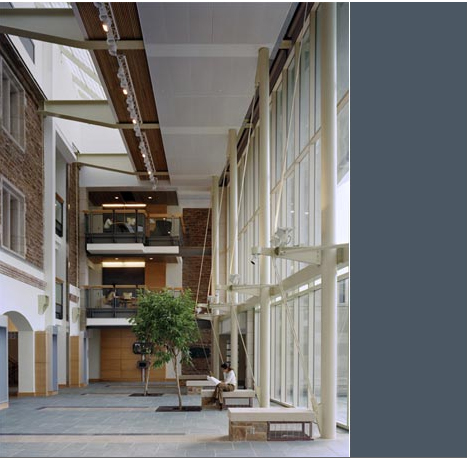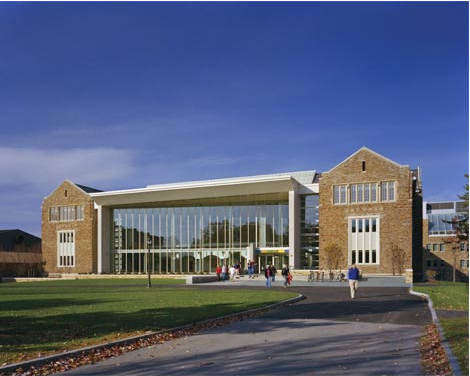Thesis Research
* Biochemistry
Catherine Michels '96
"Glutamine and Glutamate Uptake in Yeast RAS Mutants"
Abstract
The goal of this thesis project was to study the role of the RAS/cAMP pathway in regulating amino acid uptake and nitrogen metabolism. This was done using two mutant strains of S. cerevisiae, an ira 1-, ira2- strain and a RAS2val19 mutant. The ira1-, ira2- strain (referred to as IRA1, 2) has a mutation in a stimulator of the GTPase activity of Ras while containing a wild type of copy Ras. The RASval19 strain (referred to as R2V) has a mutation in Ras itself that affects its GTPase activity. Both mutations lead to constitutively active Ras. To focus on nitrogen metabolism all three strains were grown in media varying only in the quality of the nitrogen source, and then assays were performed to determine the glutamine and glutamate uptake by each strain in each media.
Though both mutant strains have similar phenotypes and constitutively active Ras/protein, we have shown that each exhibit different glutamine and glutamate uptake in different media with poor nitrogen souces. The levels of glutamine and glutamate permease expressed in R2V and IRA1,2 grown in minimal ammonia medium are not significantly different from that found in wild-type cells grown in the same medium. In minimal glutamine medium, the permeases are down regulated in both mutants. However, in comparison to wild-type and IRA1,2, permeases in R2V are activated in minimal proline medium while they are downregulated in minimal glutamate medium.
In view of the fact that both R2V and IRA1,2 have comparable constitutively active cAMP signalling, finding out that they regulate glutamine and glutamate permease activity differently in minimal proline and minimal glutamate medium clearly indicated that R2V has functions which are independent of its constitutively active cAMP signalling. My results are an indication that Ras may have other cellular functions separate from cAMP signalling in yeast.

For the past year Cathy has been working at the Dana-Farber Cancer Institute in Dr. David Livingston's laboratory. They are working on p300, a transcriptional adapter protein involved in cell cycle regulation. Cathy is studying the role of a newly cloned protein which associates with p300.



